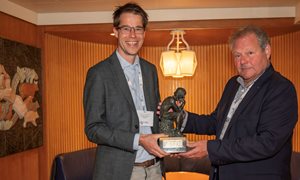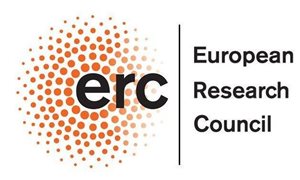
During development, the very early embryo is thought to be developmentally unrestricted, being able to differentiate into both embryonic (foetus) and extraembryonic (placental) lineages. This unrestricted developmental potential is thought to be facilitated by the lack of any chromatin-based lineage-barriers, representing a "blank slate". However, it has remained enigmatic how such blank slate of totipotent-like cells is manifested.
To comprehensively profile the epigenetic state of human naive (totipotent-like) embryonic cells, international group of researchers spearheaded by Dick Zijlmans and Hendrik Marks together with colleagues from KU Leuven, examined which proteins are associated with the chromatin and how this affects gene transcription. They observed a strong enrichment of the histone modification H3K27me3, which is deposited by polycomb repressive complex 2 (PRC2), and found this histone mark to be more abundantly present at the promotors of lineage-determining genes. By inhibiting PRC2, thereby preventing H3K27me3 deposition, the researchers observed enhanced formation of trophectoderm cells. Similarly, in a very recently developed human embryonic model called blastoids (see figure), they observed accelerated blastoid development and increased cavitation upon PRC2 inhibition, highlighting a role for PRC2 as a lineage gatekeeper during the earliest stages of human development. The results were published this week in Nature Cell Biology.


This new research opens up the ability to better control stem cell specialisation and blastoid development, which is useful for studying in the laboratory how the initial placental cells are formed. In the longer term, the new knowledge might improve our understanding of how embryos successfully implant in the uterus at the earliest stages of pregnancy, and how this can be misregulated.
Related news items

T cell immunity is directed by tetraspanin CD53
5 July 2022 T cells are immune cells that are key for the defense against pathogens and cancer. T cells depend on the membrane protein CD45 to initiate T cell receptor signaling, but how CD45 is controlled at the molecular level is poorly understood. read more
Dutch Society of Clinical Chemistry Science & Innovation Award for the team of Hans Jacobs
14 June 2022 The team of Hans Jacobs pioneers on the development of personalized diagnostics to measure minimal residual disease in patients with multiple myeloma. read more
European grants for groundbreaking Radboudumc research Professors Roshan Cools and Peter Friedl receive ERC Advanced Grant
26 April 2022The European Research Council (ERC) is awarding grants to Roshan Cools and Peter Friedl, both professors at Radboudumc. While Cools will investigate how brains control behaviour in (stressful) situations, Friedl will work on developing a new cancer therapy.
read more
Saponin-based adjuvant-induced dendritic cell cross-presentation is dependent on PERK activation published in Cellular and Molecular Life Sciences
20 April 2022 Lisa Huis in ‘t Veld, Nataschja Ho and colleagues from the team of Gosse Adema published in Cellular and Molecular Life Sciences that Saponin-based adjuvant-induced dendritic cell cross-presentation is dependent on PERK activation. read more
Rubicon grants awarded to three RIMLS researchers
19 April 2022Three researchers have received Rubicon funding from NWO/ZonMw. This will enable Elke Muntjewerff, Laura de Vries and Laurens van de Wiel to do research at a foreign research institute for the next two years.
read more
